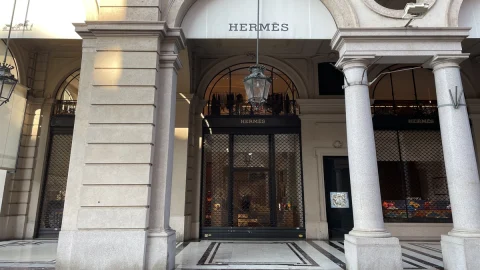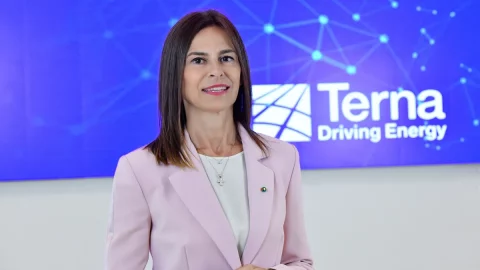Two different stories. But with a common denominator: something is moving on the map of Italian economic power, atrophied around the same old names. Fate so wanted that on the same day, without each other's knowledge, Gianluigi Aponte, Sorrento commander of long-running ships and Claudio Dogliani, a powerful yet unknown manufacturer arriving from the magnetic land of Langa, would rise to prominence with operations (one completed, the other just sketched out) that could change the face of Italian logistics. The first with Italo, recently conquered; the second with Highways for Italy (Aspi). Let's be clear: there is no connection between the two or, as far as anyone knows, of the role that these operations could have as part of a strategy to reopen the privatization files. But there is the feeling, or more than one feeling, that after the long hibernation (and the many flops), something is moving. And the playing field is the infrastructures in Italy.
Aponte with Italo challenges the Railways and thinks of Ita
The cover title certainly belongs to the commander Gianluigi Aponte, which carried out the purchase, with associated management, of 50% of Italo, the railway company competing with Fs. It is the last challenge, for now, of the sailor who landed in Geneva in the early seventies after his marriage to Raffaela Diamant Pinas, the daughter of bankers he met on a cruise ship of which he was captain. His first operation was the purchase of the Patricia, an old German cargo ship used to trade with the Horn of Africa. Since then the group's expansion has never stopped: his MSC has over 560 container ships and is the leading cargo company in the world, ahead of the Danish Maersk. No less strong there fleet of ferries and cruise ships (godmother the friend Sophia Loren) created starting from the purchase of Star Lauro. But what catapulted MSC into the Olympus of the world's logistics giants was the purchase a year ago of the Bolloré group's empire of African ports, roads and railways; a deal worth 5,7 billion euros, made possible by the enormous profits made in the pandemic season when freight rates skyrocketed.
ALSO READ: Bolloré and the African ports: this is how Aponte defeated the Chinese
Strengthened by recession-proof international strategic leadership, Aponte was able to turn his attention to his lifelong goal: bringing together a 360-degree transport network for both goods and passengers covering sea, sky and rail. The purchase of 50% of Italo (the company was valued at 3,2 billion, net of 900 million in recently refinanced debt) will be the driving force for expansion in Europe by land because Aponte, who in recent days took over the 50% of the freight sector of the Spanish public railway operator Renfe certainly does not want to stop in Italy. And they will help international growth alliances with other Italo partners, from the American fund Gip (which in 2018 had acquired the entire company for 2 billion euros) to the Allianz funds, as well as Luca di Montezemolo, who is president, and the CEO Giambattista La Rocca.
Aponte's objectives after Italo: the assault on Ita with Lufthansa
The first objective is to expand the company's activity to freight traffic as well as harmonizing passenger transport and cruise ships, then the Bordeaux trains will travel (connecting 51 cities, with a team of 1.400 employees and 20 million passengers per year) in much of Europe. While waiting to launch a new assault on Ita, in combination with ally Lufthansa.to crown a chase that has lasted 15 years, when Aponte agreed to be part of the group of entrepreneurs mobilized by Berlusconi to take over Alitalia, only to change his mind a few months later in the belief, which turned out to be correct, that that adventure would lead nowhere. Today Aponte, by far Fincantieri's first private client, is trying again. Just as the other giants of the sea do: the French Cna-Cgm is the largest private shareholder of Air France KLM, just as the German Hapag is of Lufthansa.
And on Aspi Dogliani prepares an offer
Aponte's drawing is missing the tee pieceroad transport. But big news is also brewing on the troubled chapter of motorways, starting from Aspi. A Bloomberg scoop announced yesterday that the Piedmontese group Fininc, which belongs to the Dogliani family and ranges from wine to construction, passing through motorway concessions, he is thinking of doing an offer for the controlling share (51%) of Holding Reti Autostrada (HRA) owned by CDP. An 8 billion operation destined to rise to 20 with the assumption of debts linked to the network that the group could carry out with the support of an international giant in the sector.
The Dogliani family, as unknown to most as they are well introduced in the levers of the business, is not an outsider in the motorway sector: Two years ago the Langhe group took over from Gavio, Tortona's competitor, the concession for the A21 Turin-Piacenza and the A5 Turin-Quincinetto. And, since then, it has been a succession of appeals and counter-appeals, a battle that is not over yet even if the conclusion seems close. The industrial curriculum includes the construction of the Frejus motorway which connects Italy to France, as well as the Pedemontana Veneta in Veneto. In the South it built part of the Salerno-Reggio Calabria motorway.
Fininc in the running for Aspi: a solid group
The financial statements of the holding company tell of a solid group in terms of assets which allocates profits to reserves and which has 1.500 employees. The company, founded over 50 years ago with registered office in Turin, is led by Claudio Dogliani, son of the eighty-two-year-old president Matterino, one of the most powerful but unknown manufacturers in Italy, closed the 2022 consolidated financial statements a few weeks ago with a capital net income rose year on year from 933 to 995 million euros and assets went from 1,49 to 1,61 billion. Revenues increased to 304,4 million (from the previous 256,8 million) with an Ebit improved to 15,6 million (from 11,5 million) for only 739 thousand euros in profits. The group's turnover amounted to 278,1 million in the main manufacturing sector construction, engineering, concessions and multi-utility, for 24,3 million in wine, the remaining 1,8 million in a tourist resort.
Aspi to Fininc: a difficult match but Salvini pushes
What are the wildcards that the group could play in an almost prohibitive game, given the obligation for Cdp to maintain ownership of Aspi for at least 5 years, as provided for in the contract with Benetton? Behind the offer organized with the consultancy of the financial boutique Kaufmann & Partners founded by the former Telecom manager Francesco De Leo there would be the push of the Minister of Infrastructure and Deputy Prime Minister Matteo Salvini fed up with the stalemate over Aspi's investments. The minister does not confirm but underlines that "if a large Italian entrepreneur manages to put together the funds for a fundamental investment plan for Italy, like that of Aspi, from the Gronda di Genova to the Passante di Bologna, from the works on the A1 to the A14 Adriatica up to the node of Florence, this it is certainly of great interest".
ALSO READ: Aspi, Autogrill, Atlantia: the 3 moves with which the Benettons say goodbye to Piazza Affari






Privatizations without addressing the state of antiquity and saturation? Also the
ministry seems aware only of the historical bottlenecks but not of the age and saturation. Can we solve this with changes of ownership and extensions of concessions?